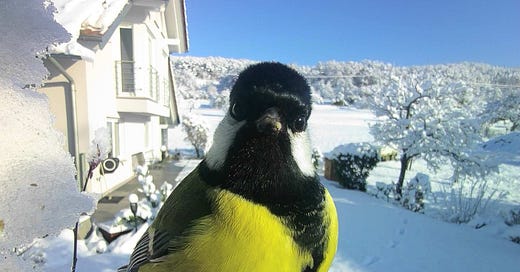I feel like the way we create things has changed a lot.
There are two major ways I think the act of creating anything is changing:
Unlimited access to inspiration: We have access to an ever-growing archive of stimuli through social media and the internet.
We can outsource the creation: New tools, trained on past works, auto-complete parts of the creation process.
As a result, many new creations feel like derivatives rather than entirely new ideas.
Is that bad?
Let’s talk about it.
Inspiration Overload
Everyone has their own approach to creating something new. But now, more than ever, we’re exposed daily to countless ideas and works. Thousands of writers, artists, and photographers are putting their content out into the world for free on social media.
Compared to creatives of the past, we have far more stimuli to get us going.
But how does this level of stimulus truly limit creativity?
Algorithms curate our feeds based on past preferences, limiting exposure to new ideas and reinforcing the same styles. As a creator, you're continually shown what's trending, which can unconsciously lead you to mimic popular trends rather than exploring your own unique ideas.
I've certainly noticed that my own creative ideas often mirror what's trending on my feed.
After all, popular work reaches people, and reach pays the bills.
Anything you can do AI can do…
Easier?
New technology has made the creation process far easier. You could argue that past technologies had similar effects, but there are many misconceptions about AI and its role in the creative process.
AI, especially in the art world, has gotten a pretty bad rap initially. Yet some artists are doing fascinating things that simply were not possible before:
Refik Anadol: His studio trains models on huge sets of image data and leverages AI "hallucinations"—normally considered a glitch—as a feature to dream up new imagery from the inputs.
Shane Fu: Similar to Refik, he trains models on his own work, allowing them to dream up new pieces based on his past collections and hallucinate between them
While AI can streamline parts of the creative process and provide new tools for expression, it’s also become a short-cut to replace the creative process entirely for others.
Take writing, for example.
If my goal is to become a better writer, I can't just ask ChatGPT to write a piece for me. That would be an exercise in prompt engineering—a different skill altogether.
That's like saying I want to get better at cooking dinner but ordering takeout and calling it the same thing.
For worse, these tools have already become a crutch for budding and experienced writers. Paul Graham noted a nearly 40x increase in the use of the word “delve” among research papers, one of many terms that have become a telltale sign of AI generated writing.
Sure, the end result—an essay or short blog post—is mostly the same, but the growth and true creativity come from going through the process and spending hours writing and rewriting.
AI might make things easier for most of us, but short-changing the creative process will have its consequences.
The Reality
Creating something new is supposed to be hard.
In a world flooded with readily available ideas and a hot new AI tool every day, making something has never been easier. But crafting work without the influence of algorithms or models is more challenging than ever.
Perhaps it's time to embrace the challenge and rediscover the joy of creating something that's truly your own.




